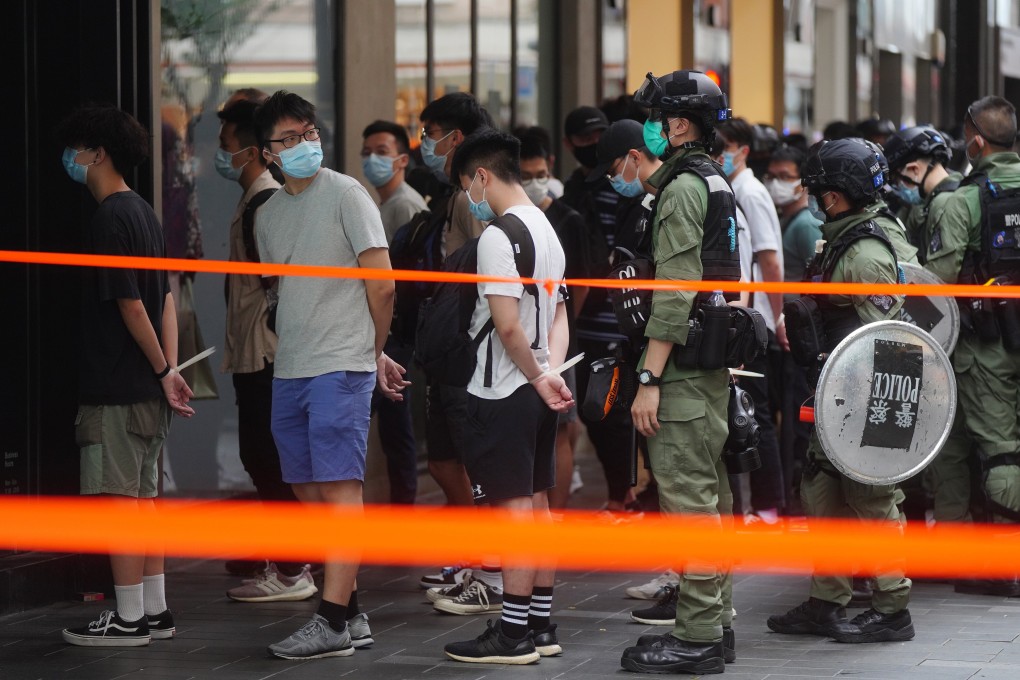Reflection required by all parties after day of mixed emotions in Hong Kong
- Less festive atmosphere betrays the need for protesters and the Hong Kong government to think about a brighter future after such a dark chapter

Hong Kong is having a long weekend like no other. On one hand, the Mid-Autumn Festival coincides with National Day to give the city a much-needed break from a worrying epidemic.
On the other hand, the enactment of the national security law in the wake of last year’s social unrest has deepened the political divide and renewed momentum for confrontation.
The mix of festive celebrations and rowdy protests amid tight health restrictions and an economic slump makes an unusual backdrop for some serious soul-searching on the city’s development.
Unlike previous “golden week” holidays when the streets were packed with shoppers and revellers, the prevailing atmosphere is noticeably less festive. Tensions flared in Causeway Bay yesterday afternoon, with dozens of arrests, but the scenes were, thankfully, not as chaotic as last year.

03:37
Massive police presence blunts Hong Kong protests on China’s National Day
The spotlight was also on arrangements for the press, after recent police measures restricted access to outlets only recognised by the government.
The protests fly in the face of claims by Chief Executive Carrie Lam Cheng Yuet-ngor that the national security law has restored stability.